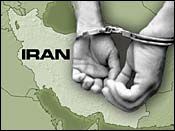|
|
|
LONDON FLIRTS WITH APPEASEMENT
As Britain tries to absorb the shock of 7/7, some voices are urging what would amount to the appeasement of the terrorists. Experience, however, shows that the appeaser becomes a more attractive target for the terrorists. The appeased terrorist concludes that, having won a battle, he should press for victory in his war against a weakened adversary. Appeasing terrorists was tried by French president Fran ois Mitterrand in the 1980s, and made France the most-targeted Western country for a decade. Mitterrand launched his appeasement weeks after becoming president in 1981. He released all the 31 convicted terrorists in French prisons and lifted the ban on pro-terrorist publications and illegal radio stations. He also abolished the State Security Court, set up to deal with terrorism, describing it as a Nazi-style outfit. He let the Basque terrorists of ETA use French territory as a base against Spain and allowed various Palestinian groups and the Irish Republican Army (IRA) to operate in Paris. Mitterrand feted Yasser Arafat, then regarded as the godfather of terror, and traveled to Cyprus to court Libya's dictator Muammar Gaddafi, the principal paymaster of international terror at the time. Mitterrand's appeasement included the Khomeinist regime in Teheran and led to an exchange of ambassadors and high-level contacts. The French leader emphasized the ideological propinquity of his Socialist party with "other radical movements," meaning terrorist groups, that were also "striving for justice." At one point Mitterrand even talked of the "common roots" of the French Revolution and the Khomeinist takeover in Iran. IN 1984 Mitterrand's policy led him into vetoing an American plan for joint G-7 action against international terrorism. In a meeting with then vice president George Bush, who headed a special anti-terrorism unit created by president Ronald Reagan, Mitterrand argued that the only way to deal with the threat was to "address the grievances" which were "often caused by Western policies." Not surprisingly terrorists of all denominations began to see France as a safe haven. Abu Nidal and Carlos visited Paris for business and pleasure. Imad Mughniyeh, a Lebanese terrorist on the American "most-wanted list" dropped in for shopping holidays. Ayatollah Ruhallah Khomeini sent his nephew, one Massoud Hendizadeh, to set up a terror headquarters in Paris. The Islamic Embassy in the French capital became the center of operations for Europe. Later, when French police issued an arrest warrant for Vahid Gorji, the man who headed the Iranian terror headquarters in Paris, Mitterrand arranged for him to be put on the first flight to Teheran to escape prosecution. Payback for Mitterrand's policy started with the assassination of General Rene Audron, a senior member of the French Defense Ministry, in 1985. A few months later Paris was hit by a series of bomb attacks, including on two major department stores in which 35 people were injured on Christmas Eve. In February 1986 a major shopping arcade and a hotel on the Champs Elys e were bombed. The wave of attacks continued with the bombing of the Forum des Halles and the attempted blowing up of the Eiffel Tower. By March 1986 France was the victim of a full-scale terror campaign, including a suicide operation in which two Arab terrorists were killed on the Champs Elys e. Attacks on the Paris Metro, Orly Airport and shopping centers created a climate of fear. Dozens of other plots, including an attempt to derail a high-speed train, were nipped in the bud by the police. Throughout the Mitterrand appeasement a total of 93 people were killed and more than 800 wounded in terrorist attacks in France. To these must be added 17 Iranian dissidents who were killed by hit-squads from Teheran. But this was not all. Fifty-three French paratroopers were killed in a suicide attack in Beirut in 1983. Also in Beirut a pro-Syrian group assassinated France's ambassador, while a Khomeinist gang held the French ambassador in Teheran hostage for several days. A total of 37 French citizens were held as hostages in the Middle East, and two murdered in cold blood, by the same terror groups that Mitterrand had tried to appease. France is not alone in having tried appeasement and failed. Algeria, Egypt, Germany, Saudi Arabia and more recently Spain have had similar experiences. The British should know that any appeasement of terrorists could put them in an even greater danger. |
